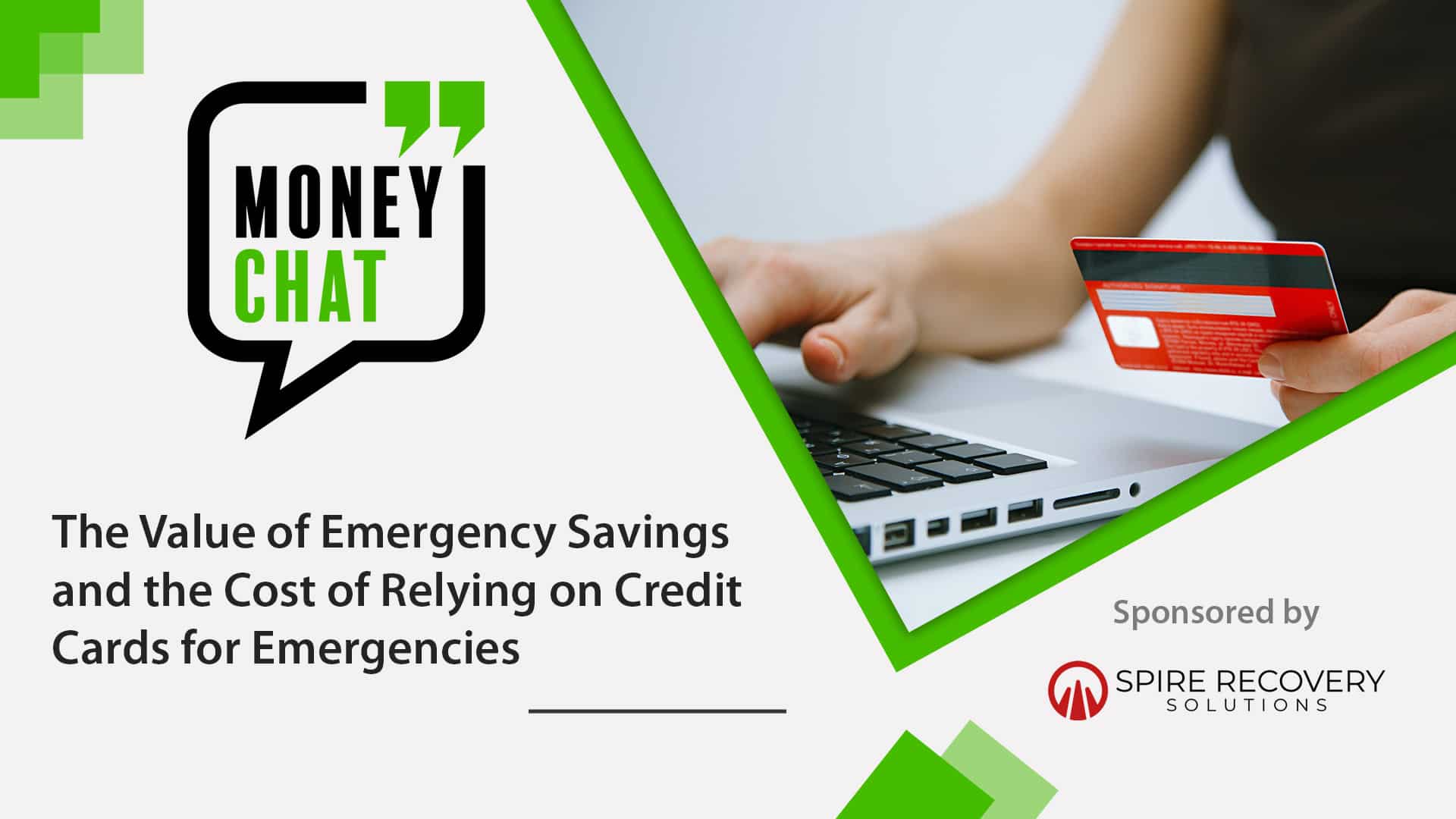
4 Things to Keep in Mind When Talking to a Debt Collector
Life can be busy and stressful, and it may feel especially stressful when you find yourself talking to a debt collector. It can be easy to see debt collectors in a negative light, and you might wonder why they don’t just give up. Maybe you even wonder if debt collection is a legitimate business or if there are any rules to regulate debt collectors. And what if they call you at a bad time? Or what if you don’t have the money to pay? There are lots of opinions out there but not always a lot of actual facts. So the big question is, what should you keep in mind when talking to a debt collector?
The goal of this Money Chat is to provide information to remember when talking to a debt collector. As with anything in life, sometimes keeping the bigger picture in mind can help reduce the emotional charge you might feel. So, here are 4 things to keep in mind when talking to a debt collector.
1. Debt Collection Has Evolved
There is a stigma when it comes to debt collection, but one thing to keep in mind is that debt collection in the US has evolved. In the early 2000s, financial reform occurred across the country in many sectors of consumer finance, including debt collection. The Federal Debt Collection Practices Act (FDCPA) was enhanced and the Consumer Financial Protection Bureau (CFPB) was created. As a result, debt collectors are trained to comply with many rules and regulations that are in place to protect consumers.
The debt collection industry has also become self-regulating due to the growth of trade organizations including The Association of Credit and Collection Professionals (ACA International) and Receivables Management Association International (RMAI). The industry tone set by these leading organizations is compliance, consumer protection, and ethical practices. For example, ACA International promotes the “Collector’s Pledge” to all its members:
I believe every person has worth as an individual.
I believe every person should be treated with dignity and respect.
I will make it my responsibility to help consumers find ways to pay their just debts.
I will be professional and ethical.
I will commit to honoring this pledge.
2. Debt Collection is a Necessary Job
Another thing to keep in mind is that debt collectors are regular people trying to do a job. They understand personal struggles because they’re fellow humans with struggles of their own. It’s understandable to feel overwhelmed or stressed when it comes to unresolved debt– just try not to “blame the messenger.”
Debt collection is a necessary business. Creditors need ways to recover losses that occur from unpaid accounts. Without recovery through collection activity, creditors have to compensate for the loss in other ways such as raising interest rates for other borrowers. This can have a ripple effect impacting the whole economy. That’s one of the many reasons why collection activity is a necessary part of the credit ecosystem.
3. Debt Collectors Can Work With You
When talking with a debt collector, keep in mind that collectors are trained to help you find solutions. If you have a request regarding your account, the collector may be able and happy to accommodate. For example, if it’s not a good time to talk and you want a collector to call back at a certain time, or call you on a better phone number, communicate that information so the account can be noted. If you want more information about the account, communicate what you’re unsure about so you can learn more details or request validation to be mailed.
Debt collectors are often “3rd parties,” which means they may be collecting on a client creditor’s behalf but may not own the account. Keep in mind that the collector likely has authority (or can ask permission) from the creditor to negotiate a payment plan or settlement arrangement to resolve the debt. If you’re financially unable to pay the full amount upfront but are willing to set up a payment plan, you can make an offer and work with the collector to come up with an agreement that works for you. Remember that debt collectors are trained to help you find a solution for resolving your debt. Respectful, two-way communication can go a long way toward finding a mutually amicable resolution.
4. Debt Collectors Have Call Requirements
Finally, remember that debt collectors are required to say certain things for your protection, and are not allowed to say other things by law. So if they sound scripted at times, try to be patient and remember that they’re saying what they’re required to say or following the process prescribed by law. The Mini-Miranda disclosure, for instance, is the statement at the beginning of a debt collection call informing you that the purpose of the call is to collect a debt. Another thing debt collectors must do is confirm your identity on the call by verifying key pieces of your personal data (such as your address, date of birth, or the last four digits of your social security number). This is done before discussing any of your account details to make sure your account information is only discussed with you and anyone else you’ve authorized (such as a spouse or legal representative).
Debt collectors are trained in safeguarding your personal information. If you’re unsure or something doesn’t feel right, don’t hesitate to research and ask questions to ensure you’re talking to a real debt collector. Learning more about your rights and how debt collection works can help you spot any potential consumer scams. Keep in mind that it’s important to make sure your current address is on file so that you receive letters naming the collection agency or law firm collecting on your account.
Some Final Thoughts
When it comes to talking with a debt collector, knowing what to expect can help make the call go more smoothly. Debt collection, also known as Accounts Receivables Management, is an important sector of the consumer finance and credit industry. Debt collectors are professionals trained in consumer protection regulations. Most importantly, debt collectors are people with lives, families, and personal finances of their own. Everyone has personal things to handle, including debt collectors. Debt collectors aren’t there to judge you; they’re just there to do their jobs by helping you reach a resolution. Despite the stress often surrounding personal finances, it could be said that talking with a debt collector goes best when you approach it as a matter of business.
Additional Resources
If you want to learn more about financial literacy or your rights as a consumer, please visit the Receivables Info Resources Page.
Have an idea for a Money Chat topic?
We want to hear from you! If you have a suggestion for a future Money Chat topic, please email us at [email protected].
The information contained in this article is meant to serve as general guidance for consumers and not meant to serve as comprehensive financial advice. For questions about your individual circumstance, finances, or accounts, please contact your creditor(s) and/or financial advisor directly.
Thank you to our Sponsor
This article was sponsored by Orion Capital Solutions LLC. Founded in 2018, Orion Capital Solutions is a nationally licensed collection agency with over 30 years’ experience in delivering exceptional results for creditors and realistic solutions for consumers. Headquartered in Orchard Park, New York, the Company provides outstanding service to its clients and consumers through the integration of technology and an experienced and compassionate team.









